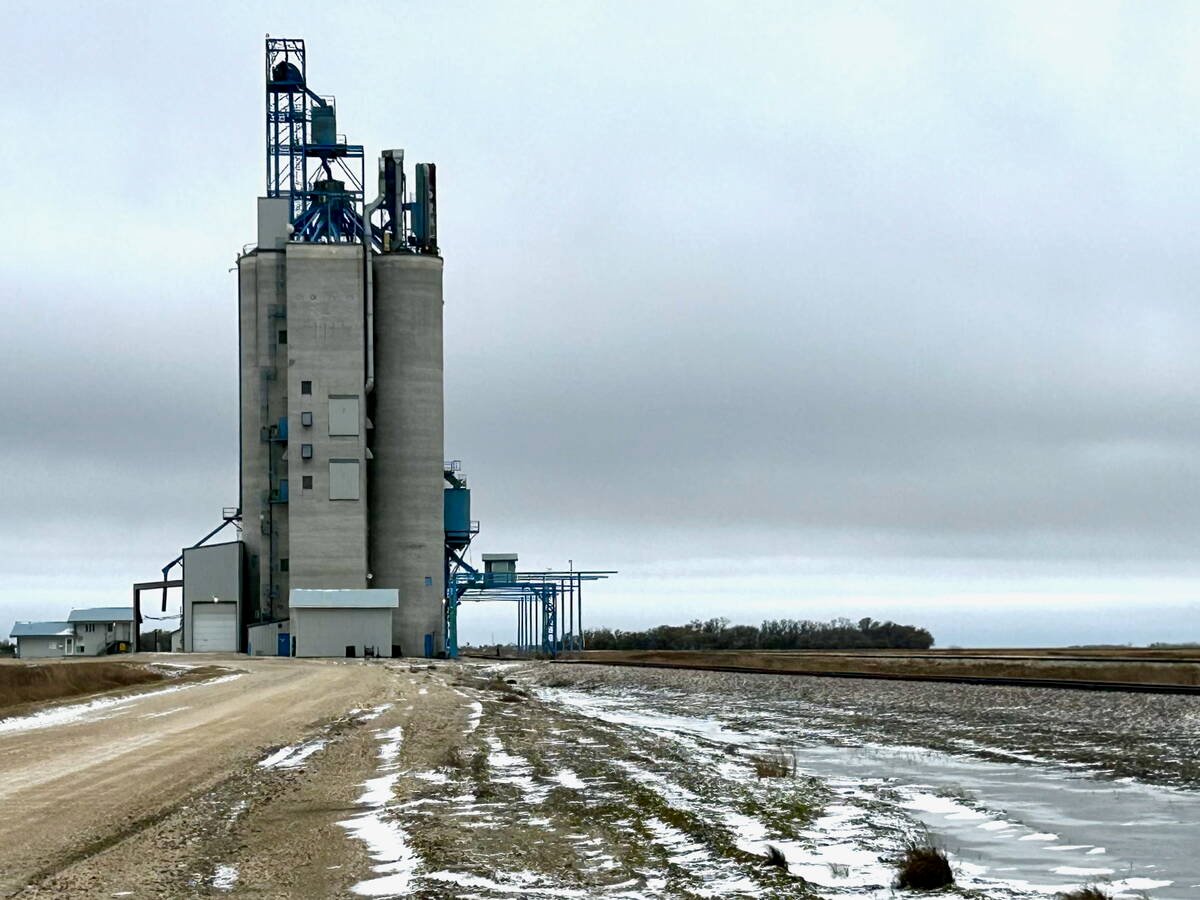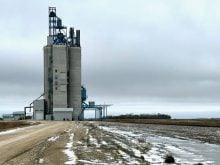Agriculture minister Ralph Goodale says he is willing to change proposed new Canadian Wheat Board legislation to make it clear that by law, farmers will control the board of directors.
And he told a Jan. 21 news conference that critics of the proposals have been creating “red herrings” about the government’s intention to centralize power.
Instead, they should be looking at how much control over the wheat board the new rules will offer.
“The essence of the CWB’s accountability to farmers will lie in demonstrating its marketing success and effectiveness,” Goodale said in Regina. “If the CWB’s performance is not satisfactory, then its board of directors, including a majority elected by farmers, can implement operational changes or ultimately trigger a process to change its marketing jurisdiction.”
Read Also

Manitoba grain elevator ownership expands
Carman-based Linear Grain buys Fannystelle elevator from Bunge, another three elevators sold to Morden’s BP & Sons Grain and Storage Inc.
Considered too vague
Since he unveiled enabling legislation in December to change the way the wheat board operates, he has been under growing criticism that the bill is too vague and appears to leave too much power in the hands of the federal government.
Part of the criticism centres on the proposal that Ottawa choose the chief operating officer and the board chair, and determine their salaries. Farm groups, companies and provincial governments have voiced concerns.
The House of Commons agriculture committee is expected to open public hearings in February.
In an attempt to counter growing criticism that his proposed changes are vague and could be a way to accumulate power in Ottawa’s hands, Goodale said:
- He is willing to change the bill to specify that a majority of the board of directors will be farmer elected. At present, the legislation says the government “may” designate some board seats as elected.
“If the arguments presented to the legislative committee (the Commons agriculture committee) are clearly to the effect that farmers would be more comfortable with the new law being more precise and less flexible with respect to the election of producer-directors, then I would be happy to entertain the appropriate amendments to bring that about,” he said.
- The government must retain the right to oversee the books of the wheat board because the government will continue to guarantee board financial dealings. “This amounts to billions of dollars annually, backstopped by the Canadian taxpayer if and when necessary.”
It means that Parliament will continue to scrutinize the board and the government will continue to assess and approve board commercial plans.
“Since (the legislation) will provide the new CWB with a unique legislated guarantee backed by taxpayers, it is not unreasonable for the new law also to include some safeguards to protect the taxpayers’ position,” said Goodale.
He did not back down from the idea that Ottawa will pick the main board executives.
Not out to regain control
- The government has no intention of using the legislation to reclaim wheat board control over domestic feed grain sales.
Critics have warned that the new bill could undo a 1974 order-in-council which removed board control of the domestic feed market.
Goodale says they are wrong, both in law and in policy. “This should certainly lay this non-issue to rest once and for all.”
He said the government is referring the legislation quickly to a Commons committee to allow farmers to air their views. He said as long as the principles of the government’s policy are not weakened, he is willing to consider amendments to make the law more clearly reflect Liberal government policy.
He said this week he is contacting farm and industry groups, as well as provincial governments, to ask their advice on who would be appropriate candidates to sit on the first interim board of directors, to be appointed by Goodale this year once the legislation is approved.
That board will organize an election for next year.














